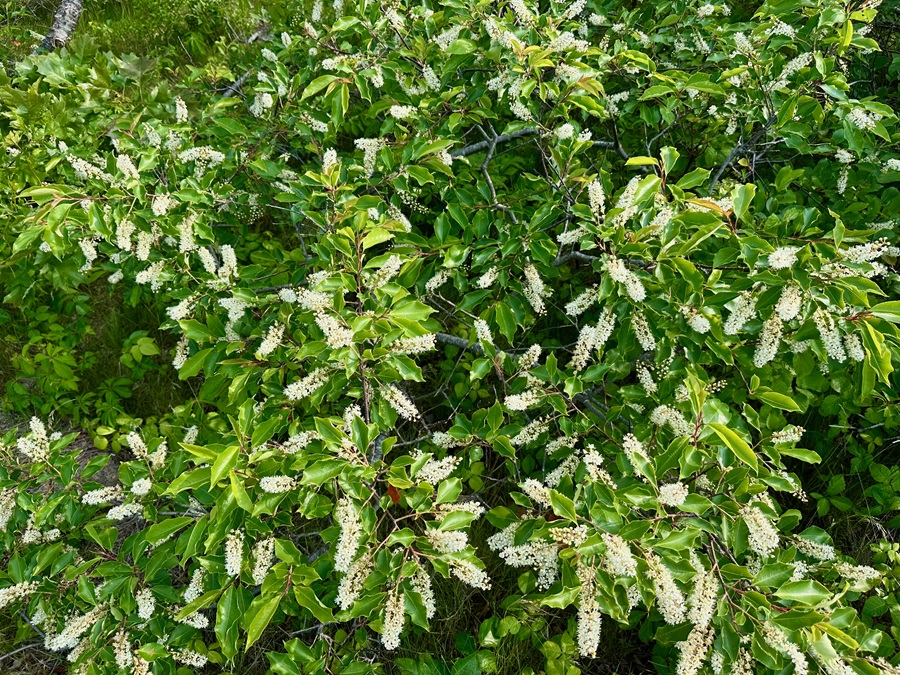
Prunus, the cherry genus, is second only to Quercus, the oaks, when it comes to providing essential wildlife services, as they say, to birds and insects. (Photo by Joe Beuerlein)Prunus serotina, the black cherry, is a host plant to over 400 species of moths and butterflies and is blooming this week in spectacular fashion — pictured here along Route 6 in North Truro. While the tree can grow to reach the top of the canopy, it can serve as a host plant while still only a few feet off the ground. A recent stroll around Shank Painter Pond in Provincetown found several young black cherries and beach plums (Prunus maritima) serving as temporary campsites for the wildly industrious Eastern tent caterpillars, which will re-emerge soon as strangely beautiful lappet moths. Black cherry can be a prolific reseeder, as many weeders of gardens know, but consider leaving the next volunteer in your yard for a few seasons to see what sort of curious and wonderful creatures it can attract.



